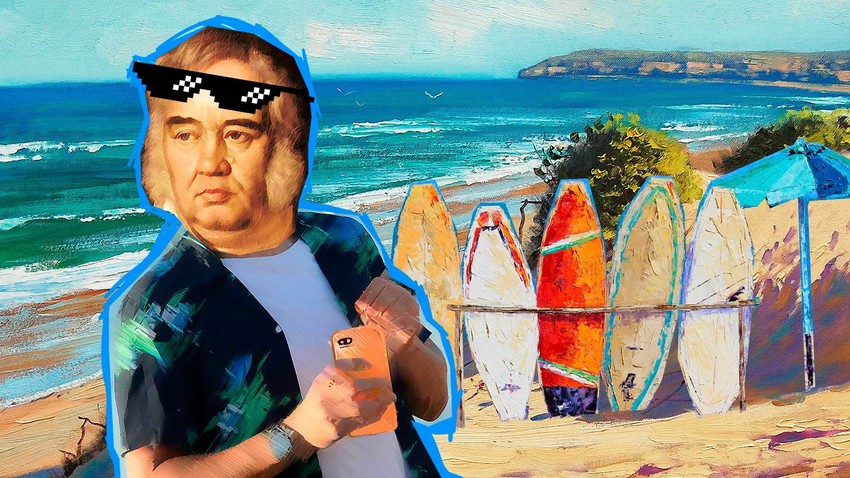What Russia's main fable writer thinks about hipsters, gadgets, and Brexit

1. The Monkey and Google Glass
A brief summary of the fable, “The Monkey and Her Glasses”: A monkey, whose eyesight has deteriorated with age, buys a pair of glasses. However, she does not know how to use them. Not being able to see any better, she breaks the glasses in a fit of rage.
In 2019, Krylov would not approve of people buying expensive and impractical things. People buy more and more sophisticated gadgets, but mostly use their smartphones just to take selfies and occasional calls. The richer an ignoramus the more expensive and sophisticated devices he buys, and the more determined he is to acquire the latest models, hoping that such impressive gadgets will make him seem more clever.
2. The Swan, the Pike and Brexit
A brief summary of the fable, “The Swan, the Pike and the Crawfish”: A swan, a pike
Krylov wrote this fable as a satire on the allies' disjointed action in the war against Napoleonic France, but it is fully applicable to modern political realities. “When there is no agreement inside the UK on how to carry out Brexit, things just can't get off the ground,” he could say today.
3. Downshifters and office plankton
A brief summary of the fable, “The Ants and the Grasshopper”: The giddy grasshopper was having fun the entire summer, while the hardworking
What would Krylov say about downshifters who rent out their apartments in Russia and spend the most productive years of their lives, say, in Thailand? Basking in the warm southern sun, they make fun of office workers back in snowy Moscow. At the same time, they risk losing their professional skills and getting out of touch with reality. One day they'll have to return to wintry Moscow only to discover that they're far removed from the picture.
4. Bloggers and Internet haters
A brief summary of the fable, “The Elephant and the Pug”: A pug is barking furiously at an elephant, which ignores the little dog. Everyone wonders why the pug keeps barking at the elephant, but that is exactly her goal: to make everyone think that she's strong since she dares to bark at the huge elephant. However, she knows very well that the elephant would not do anything to her.
These days, Krylov would make fun of Internet haters, who sit in the safety of their homes, hiding behind their computer screens, and post hateful comments on social media.
5. Infopreneurs
A brief summary of the fable, “The Quartet”: A monkey, a donkey, a goat
Modern-day charlatans promise profitable business careers to those who complete a couple of their training courses. They claim that successful businesspeople do not need a degree in economics, nor an understanding of business markets or knowledge of the law. All they need to do is to complete their 'magical course' and train in personal growth. Such people would be the butt of Krylov's jokes in 2019.
If using any of Russia Beyond's content, partly or in full, always provide an active hyperlink to the original material.
Subscribe
to our newsletter!
Get the week's best stories straight to your inbox